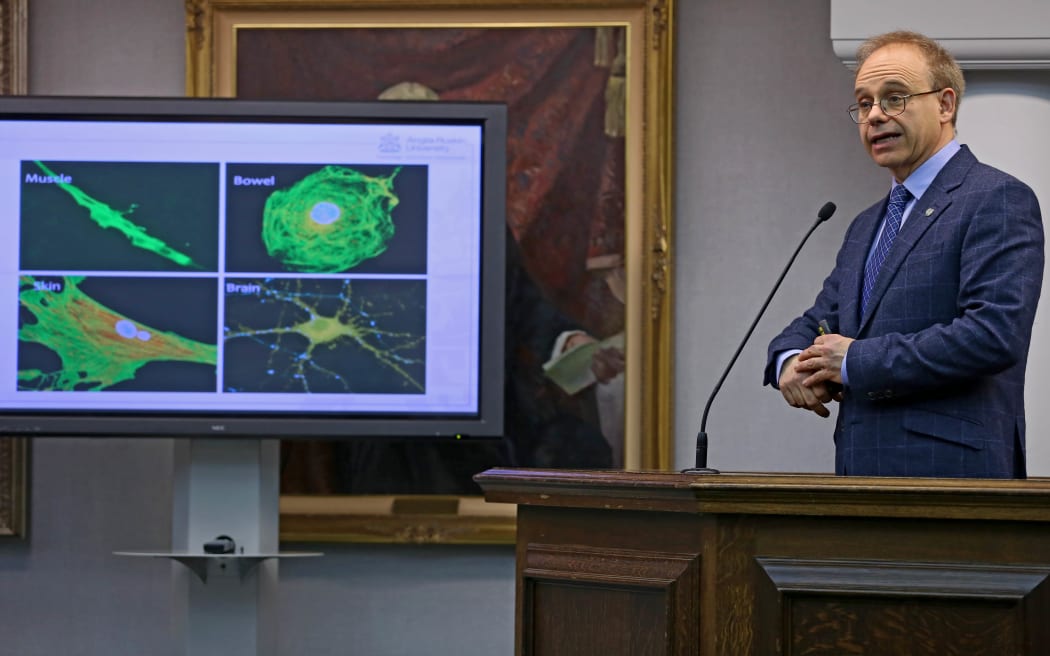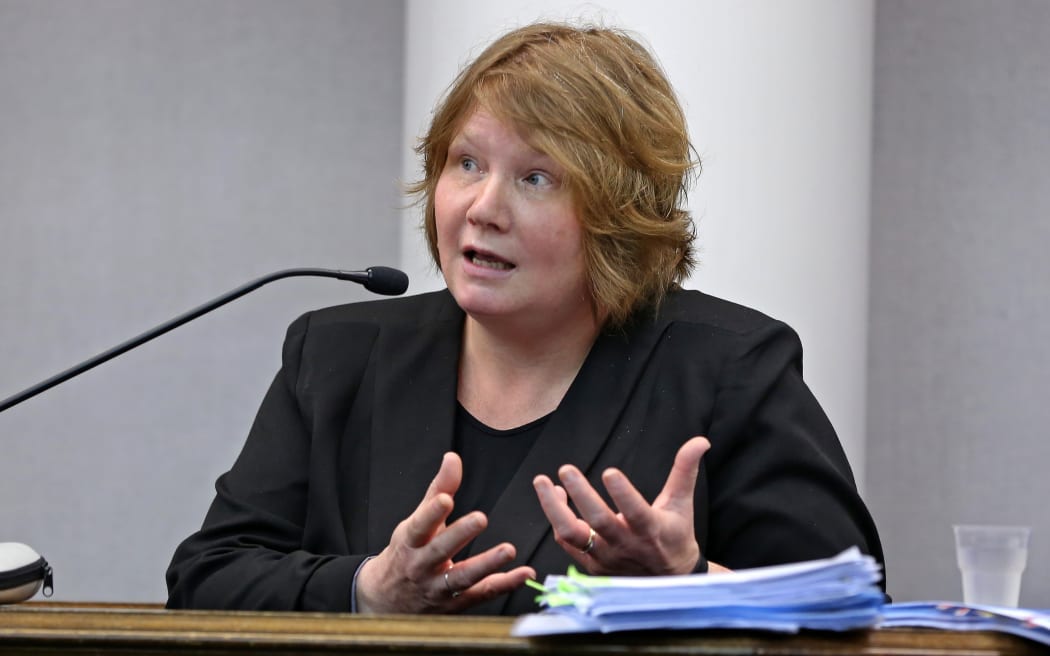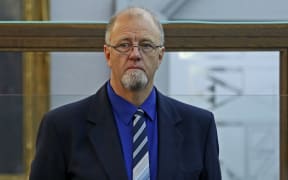A British professor of molecular medicine has told a jury he is reluctant to accept the results of a Dutch expert that a substance on Mark Lundy's polo shirt was brain.

Mark Lundy - pictured in court on Monday. Photo: RNZ / Alexander Robertson
Mr Lundy, 56, is accused of murdering his 38-year-old wife, Christine, and seven-year-old daughter, Amber, whose bodies were found in their Palmerston North home on 30 August 2000; the Crown claims Mr Lundy killed his wife for her insurance money and Amber because she saw what he was doing to her mother.
Mr Lundy's retrial, before Justice Simon France and a jury of seven men and five women, today entered its fifth week in the High Court at Wellington.

Stephen Bustin, Professor of Molecular Medicine at Britain's Anglia Ruskin University. Photo: RNZ / Alexander Robertson
United States pathologist Rodney Miller was to give evidence for the prosecution via audio visual link but technical problems meant defence witness Stephen Bustin appeared instead.
The Professor of Molecular Medicine at Anglia Ruskin University in Britain gave jurors a slide show which step-by-step rejected evidence given last week by prosecution witness Dr Laetitia Sijen, head of research and development in the human biological traces team of the Netherlands Forensic Institute.
Dr Sijen used her department's newly developed RNA "brain plex" to conclude a substance on Mr Lundy's polo shirt came from Mrs Lundy's brain.

Dr Laetitia Sijen Photo: RNZ / Alexander Robertson
But Prof Bustin said the test Dr Sijen used was invalid for many reasons, including that the positive control sample from "a freshly cut slice of brain tissue" produced only negative results in three tests; what was known to be brain tissue did not show up as such.
"That alone, in my opinion, invalidates this assay [test]," he said.
"No scientific journal would publish this data because it is invalid."
The results suggested contamination, and Prof Bustin would disregard the results, he said.
Another example was that tests conducted on RNA left at room temperature for a week all gave different results. There was no doubt RNA was unstable but there was no way to predict just how unstable under those circumstances.
Prof Bustin concluded he was reluctant to accept Dr Sijen's test results but said he did not have enough data from her tests to be certain; he could not say it was likely or not to be brain.
He ran jurors through a slide show on the ins and outs of DNA and RNA, which he said were like nectarines and peaches - similar but different.
DNA stored information, was not easily altered and not cell specific, while RNA could be cell specific; RNA cells from the bowel were different from those to the skin and those to the brain, he said.
However, "in biology, things aren't black and white ... so don't hold me to any particular thing I'm saying", he said.
The trial continues tomorrow, when Dr Miller is expected to give evidence.
* Clarification - For the avoidance of doubt, please note that Radio New Zealand reporter Sharon Lundy is no relation to Mark Lundy.


